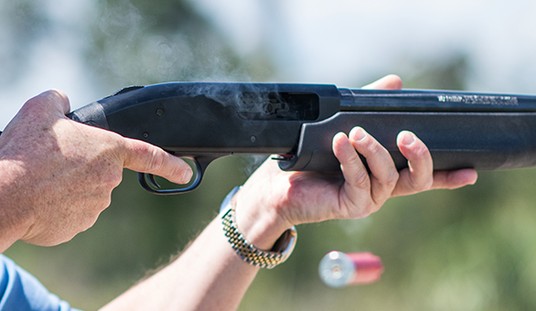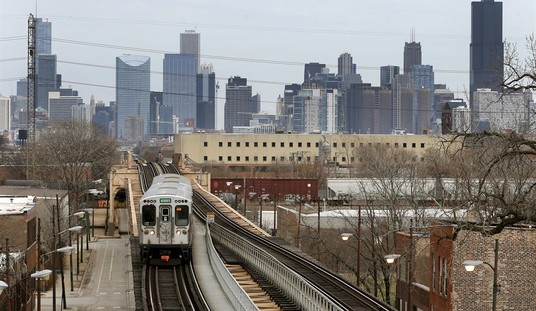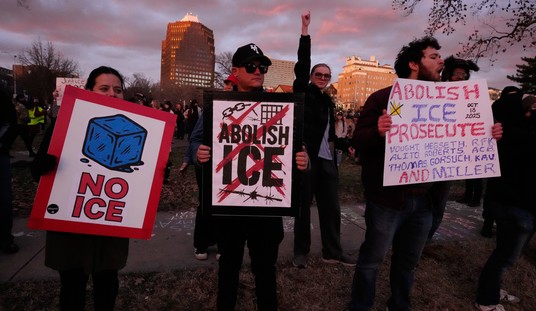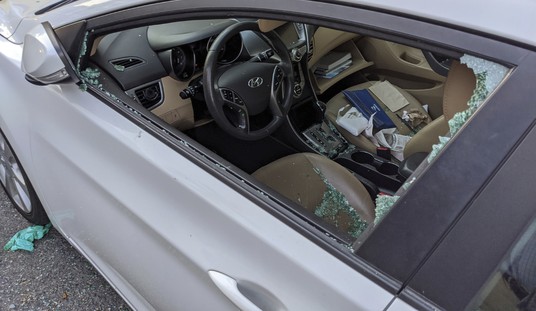Could Wells Fargo be ready to walk away from its relationship with the firearms industry? It looks like an increasingly likely position for the financial giant, according to Dennis Santiago, who writes at RedState.com that the bank’s operating committee is meeting today and could decide to end the institution’s stated policy of “providing fair and equal access to banking services to the firearms industry.”
Wells Fargo may instead adopt a business position aligning itself with the Environmental and Social Responsibility Group (ESRG) policies, the business reporting term for “political correctness”, of other large banks such as Bank of America and Citigroup that would refuse to do business with companies that manufacture or sell semi-automatic modern sporting rifle, also known by their media narrative name, semi-automatic assault weapon. JP Morgan Chase, the biggest domestic US bank, does not say it has such a policy but there have been instances where credit card processing services operated by JPM have been denied to gun dealers by third party vendors in the past.
Unconfirmed rumblings are that pre-meeting calls may have already been placed with the CFO’s of companies informing them that Well Fargo may begin withdrawing financial services shortly after the meeting. It is not clear if such a change in policy will affect commercial lending and business services just for domestic civilian goods; or if the policy will be a blanket abandonment of manufacturers including those making military, law enforcement, or export market firearms.
Dennis Santiago joins me on today’s Bearing Arms’ Cam & Co. to talk more about the rumblings that he’s hearing, and what it would mean for the industry if Wells Fargo did decide to adopt the politically correct position of refusing to do business with firearms manufacturers. One other bit of evidence that Wells Fargo may be getting ready to turn its back on gun companies is the fact that the bank just helped to provide $7.5-million in funding for anti-gun research through the National Collaborative on Gun Violence Research. As the organization touted in a Thursday press release:
After receiving 238 letters of interest and inviting 48 full proposals representing $23 million in proposed research, the Collaborative’s independent, nonpartisan Research Advisory Committee selected nine research projects, five dissertation awards, and one white paper award to fund in its second round of grantmaking. With support from the Missouri Foundation for Health, four of the funded projects, totaling $1.95 million, address gun violence in Missouri, which has some of the nation’s highest rates of gun violence.
In addition, the Research Advisory Committee has invited three other grant applicants to revise and resubmit their proposals. If all three are accepted, the committee is prepared to commit up to an additional $3.1 million in funding for a total of $10.6 million in awards.
In 2019, Wells Fargo committed to spending $10-million to support “gun violence research” over three years, and so far they’ve made good on their word. If the company wants to spend some of its corporate profits on gun control, that’s their decision, but if they do decide to curb providing financial services to the firearms industry, they could run afoul of regulators.
Santiago says that the acting Comptroller of the Currency, Brian P. Brooks (whom Santiago describes as the “sheriff of the banks”) is well aware that banks are still under pressure to limit their dealings with unfavored industries like the firearms sector. In fact, just a week ago, Brooks responded to a request by Alaska Senator Dan Sullivan to look into charges that big banks are discriminating against the oil and gas exploration industry, and brought up the Obama-era Operation Chokepoint; in which the FDIC pressured banks to end their relationships with “sindustries” like firearms, payday lending, and other disfavored sectors of the economy.
“I share your concerns regarding these decisions. The oil and gas sector is critically important to our national economy. It supports 10.3 million jobs in the United States, constitutes nearly 8 percent of our GDP,1 and many communities depend on it, such as the Alaska Native communities whom you highlight. Oil is the most actively traded commodity in the world. Given the industry’s importance and ubiquity in our daily lives, I am skeptical of claims that the sector poses a “reputational risk” to the banks that serve it.
As requested, the OCC will take a serious look at these banks’ actions. The OCC intends to seek additional information from the banks involved to understand the rationale for these decisions as well as their effect on our national economy and local communities. This will, in turn, help us analyze whether these actions violate any duty or obligation under federal laws. For example, 12 U.S.C. § 1(a) requires the OCC to ensure that banks provide “fair access” to financial services.”
“I had hoped that the banking industry’s experience with, and the eventual discrediting of, Operation Chokepoint would be a sufficient object lesson about the perils of discriminating against businesses that, while unpopular to some, are nevertheless legal for all and demanded by many in our market economy. Unfortunately, your letter suggests that that may not have been the case.”
It may be time for Brooks to take a serious look at the actions of banks when it comes to providing services to the firearms industry as well. Already big financial institutions like Bank of America and Citibank have adopted policies that keep them from funding any gun companies. If Wells Fargo follows suit, it could dry up capital and leave companies with very few options going forward, crippling the industry at a time when demand for firearms has never been higher.
Be sure to check out the entire conversation with Dennis Santiago in the video window above, and stay tuned for updates on Wells Fargo’s impending decision.









Join the conversation as a VIP Member